Ho Chi Minh City Mr. Trung, 70 years old, had a dull pain above the navel and on the left side of his abdomen for 4 months. The doctor discovered that he had a rare condition called median arcuate ligament syndrome.
Previously, Mr. Trung thought he had a stomach ache and took medication to relieve the symptoms, so he did not go to the doctor. Later, his pain got worse, tests and scans did not detect any disease, so he went to Tam Anh General Hospital in Ho Chi Minh City for a check-up.
On January 31, Dr. Nguyen Anh Dung, Head of the Department of Cardiovascular and Thoracic Surgery, Cardiovascular Center, said that upper abdominal pain is often a symptom of digestive diseases (stomach, liver, gallbladder, pancreas). However, paraclinical and imaging diagnoses did not show that Mr. Trung had any damage to these areas. The doctor performed a contrast-enhanced abdominal CT scan and found an 85% narrowing of the origin of the celiac artery - a large artery branch that supplies blood to the liver, spleen, stomach, esophagus, pancreas, and duodenum.
Arterial stenosis is often caused by atherosclerosis, which narrows the blood vessels from the inside, external compression, trauma, accidents, or other medical interventions. However, Mr. Trung did not have atherosclerosis, trauma, or intervention. The doctor diagnosed him with median arcuate ligament syndrome (also known as celiac artery compression syndrome), which causes compression of the celiac artery and celiac sympathetic ganglia. This is the cause of his abdominal pain, according to Dr. Dung.
Dr. Tran Quoc Hoai, Department of Cardiovascular and Thoracic Surgery, Cardiovascular Center, explains that the chest and abdomen are separated by the diaphragm. The aorta goes from the chest through the diaphragm's arterial opening to the abdomen, with many branches dividing to supply blood to the organs. In normal people, the ligament is located high up, the aorta goes through the ligament, down to the abdomen and branches into the celiac artery. When suffering from median arcuate ligament syndrome, the celiac artery is tightly bound by the ligament, and over time, the narrowed area gradually enlarges (due to the increased blood flow velocity after the narrowed area, creating pressure on the vessel wall).
Mr. Trung has a 7mm aneurysm behind the stenosis. If not intervened early, the aneurysm is at risk of progressing, threatening the patient's life.
The surgeon performed laparoscopic surgery by opening an incision above the navel and inserting an endoscope into the patient's diaphragm. With the help of an endoscope, the team cut the median arcuate ligament to create an opportunity for the celiac artery to expand. After two hours, the surgery ended, and the celiac artery returned to normal size.
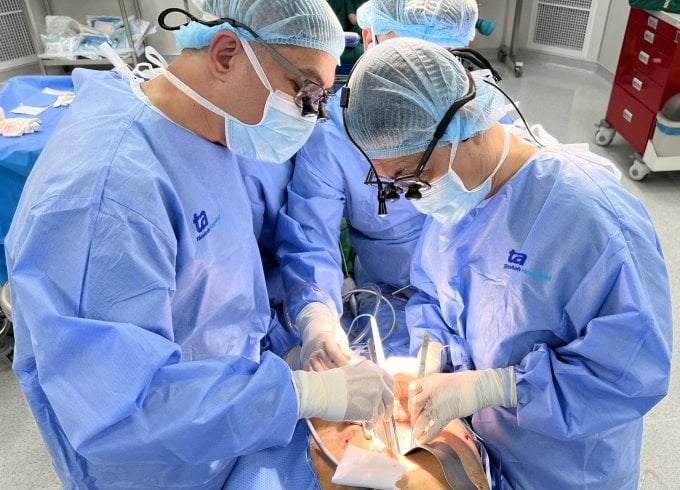
Doctor Dung (right) and the surgical team cut the ligament that tightly bound the patient's celiac artery. Photo: Tam Anh Hospital
Common symptoms of medial arcuate ligament syndrome include abdominal pain (especially after eating or exercising), nausea, vomiting, diarrhea, bloating, and unexplained weight loss. Anyone can get this syndrome. The symptoms are vague, making it difficult to diagnose.
According to Dr. Dung, surgery to release the medial arcuate ligament is the only treatment for this syndrome. Patients improve symptoms immediately after surgery, and need regular check-ups to monitor the recovery of blood flow through the celiac artery.
Thu Ha
*The names of the characters in the article have been changed.
| Readers ask questions about cardiovascular disease here for doctors to answer |
Source link


![[Photo] Third meeting of the Organizing Subcommittee serving the 14th National Party Congress](https://vstatic.vietnam.vn/vietnam/resource/IMAGE/2025/4/2/3f342a185e714df58aad8c0fc08e4af2)




![[Photo] General Secretary To Lam receives Russian Ambassador to Vietnam](https://vstatic.vietnam.vn/vietnam/resource/IMAGE/2025/4/2/b486192404d54058b15165174ea36c4e)
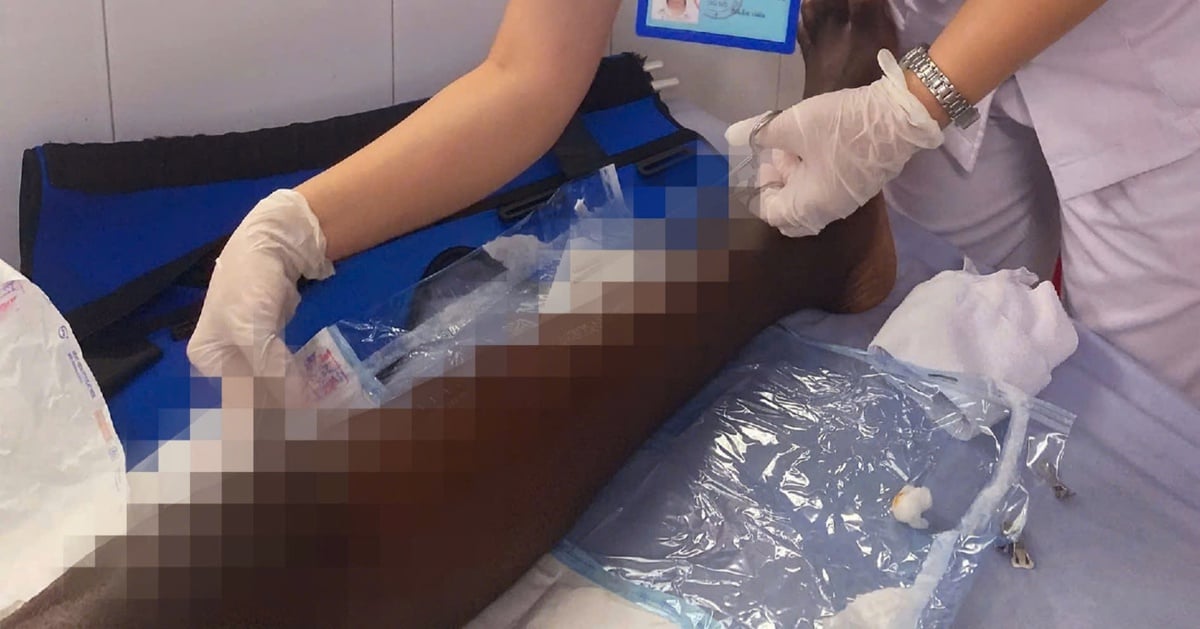

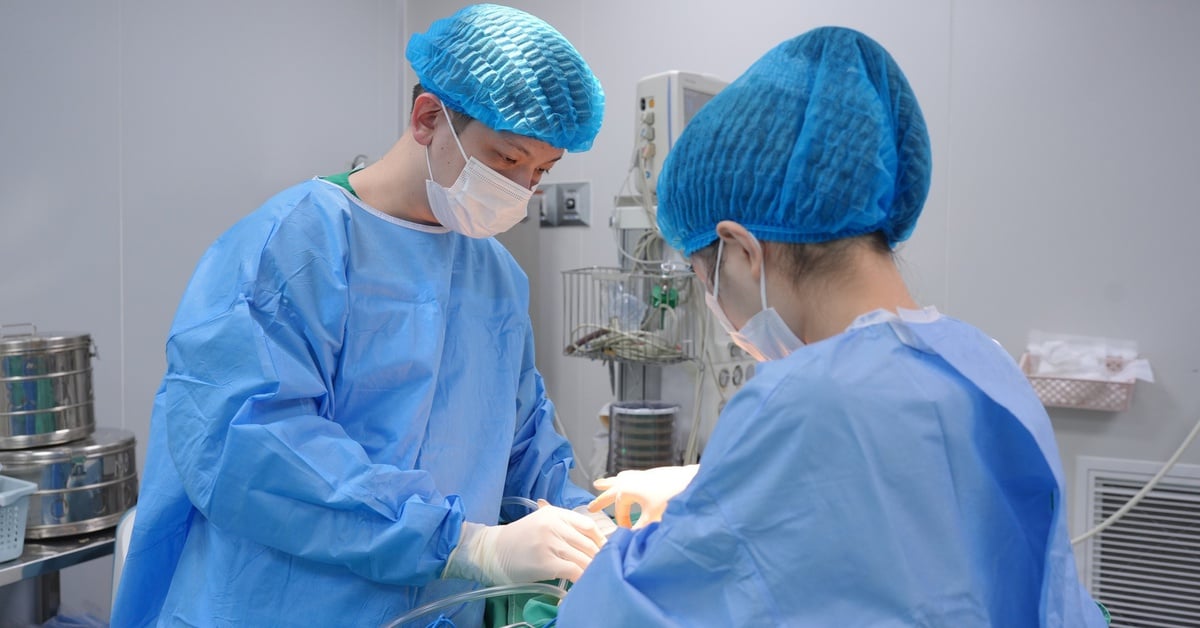
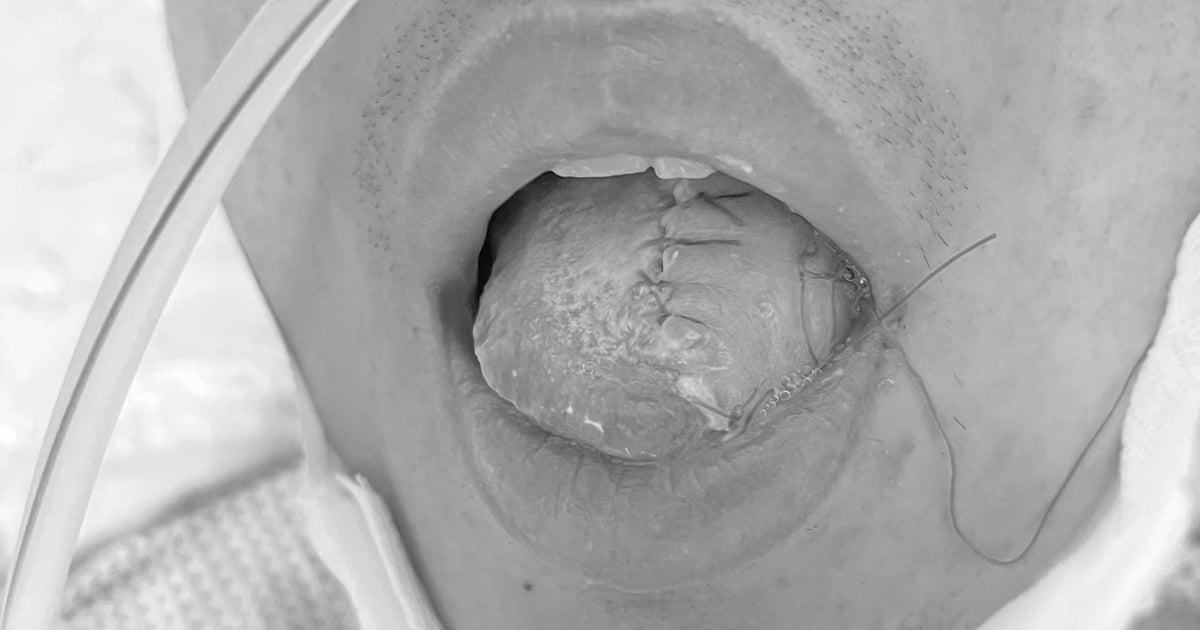

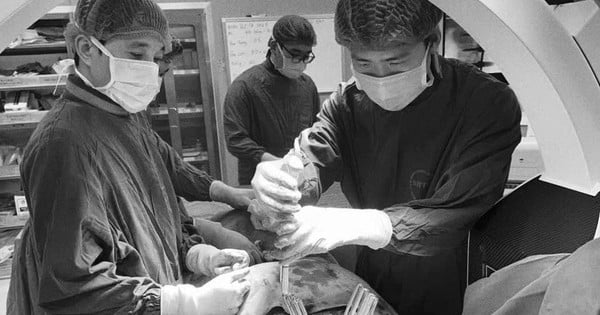




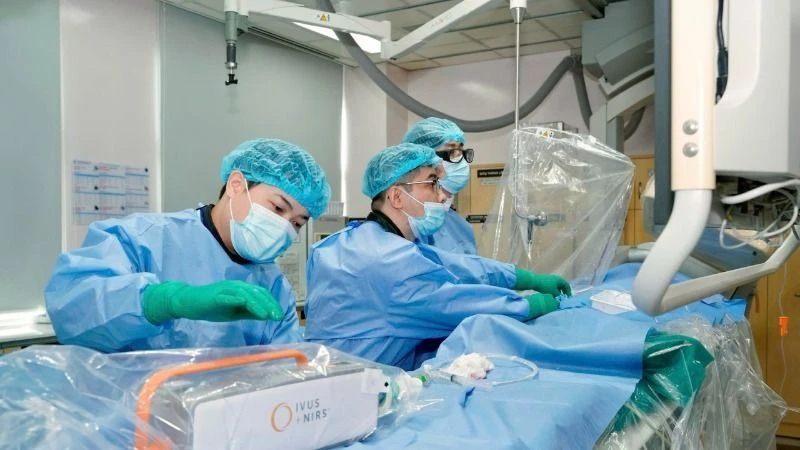

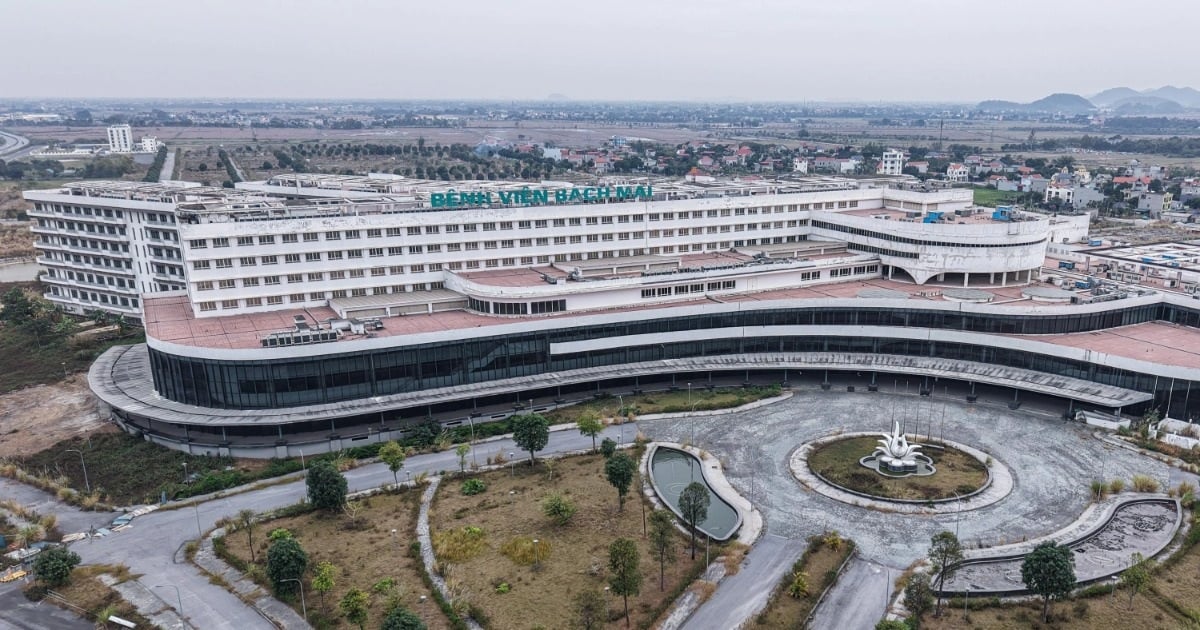

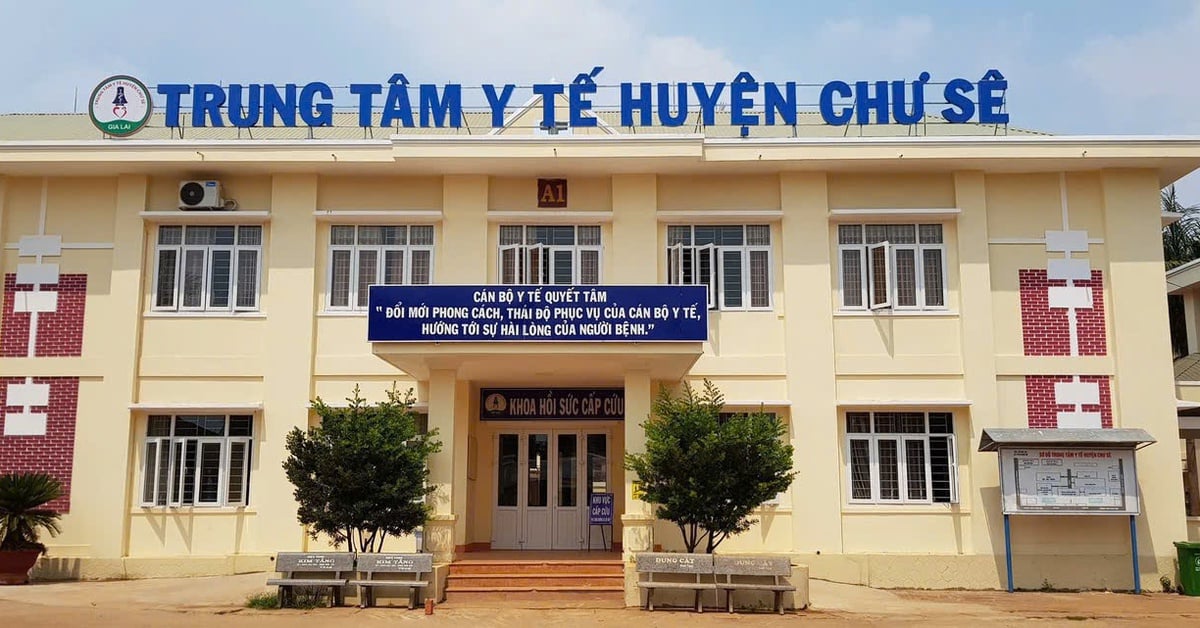










![[Photo] Relatives of victims of the earthquake in Myanmar were moved and grateful to the rescue team of the Vietnamese Ministry of National Defense.](https://vstatic.vietnam.vn/vietnam/resource/IMAGE/2025/4/2/aa6a37e9b59543dfb0ddc7f44162a7a7)





































































Comment (0)